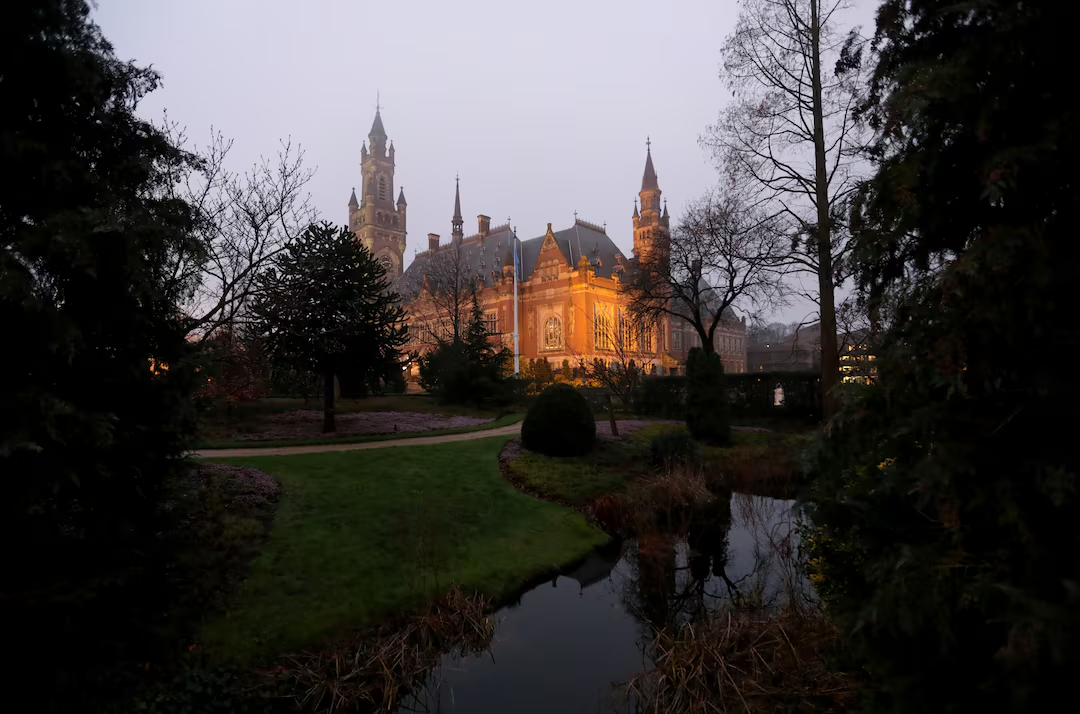The International Court of Justice (ICJ) in The Hague has begun hearing a landmark case brought by Sudan against the United Arab Emirates (UAE), accusing the Gulf state of violating international law by allegedly supporting acts of genocide in the troubled Darfur region.
Sudan’s legal team alleges that the UAE provided direct support to the paramilitary Rapid Support Forces (RSF), a group accused of committing ethnic-based violence and atrocities against the Masalit people in West Darfur. The RSF is a powerful and controversial group that emerged from the infamous Janjaweed militias, which were previously accused of carrying out brutal campaigns during the early 2000s Darfur conflict.
Sudan’s Charges at The Hague
Sudanese officials claim the UAE is in breach of the 1948 Genocide Convention — a legally binding international agreement aimed at preventing and punishing acts of genocide. The central allegation is that the UAE supplied weapons, logistical aid, and financial resources to the RSF, enabling it to carry out mass killings, forced displacements, and targeted attacks against the Masalit ethnic group.
In a statement before the ICJ, Sudan’s acting Justice Minister Muawia Osman described the UAE’s alleged role as “deeply destabilizing and genocidal in consequence.” He called on the court to impose emergency provisional measures to stop further support from the UAE to the RSF and prevent further violence.

Legal experts note that this is one of the few times a nation has been brought to the World Court under allegations of indirectly facilitating genocide through proxy support.
UAE Denies All Allegations
The UAE has strongly rejected the claims, calling them “false, politically motivated, and based on circumstantial evidence.” Emirati officials argue that the country has always supported peace and humanitarian aid in Sudan and has not taken sides in the ongoing civil conflict.
The UAE’s legal team is expected to challenge the court’s jurisdiction, citing its own legal reservations upon signing the Genocide Convention. These reservations may complicate the proceedings and limit the ICJ’s authority in enforcing measures.
Humanitarian Crisis in Sudan Escalates
The case comes amid one of the worst humanitarian crises in the world today. Since fighting broke out in April 2023 between the RSF and Sudan’s national army, the conflict has led to the deaths of more than 24,000 people. Over 14 million people have been forced to flee their homes, either internally or across borders, creating a refugee crisis that continues to grow.
Reports from humanitarian agencies and rights groups describe the situation in Darfur as catastrophic. Entire villages have been destroyed, women and children have been targeted, and aid convoys have struggled to reach those in need. The UN has expressed grave concern over the use of starvation as a weapon of war, and several eyewitness accounts suggest that the RSF is attempting to ethnically cleanse the Masalit population.
Mounting International Pressure
As pressure builds internationally, many governments are taking a closer look at the conflict’s international backers. The United States has already imposed sanctions on RSF leader Mohammad Hamdan Dagalo, also known as Hemedti. Additionally, several gold-trading firms allegedly linked to the RSF and operating in the UAE have come under scrutiny for helping finance the group’s activities.
The European Union, United Kingdom, and several African nations have voiced concern over the situation, with some calling for a UN arms embargo on Sudan. The African Union has urged both parties to come to the negotiating table but has so far struggled to mediate any lasting ceasefire.
Global Conference Seeks Peace
In an effort to find a diplomatic solution, a high-level international conference on Sudan’s conflict is set to take place on April 15, 2025. The event will be co-hosted by the United Kingdom, Germany, and France, and is expected to bring together foreign ministers from nearly 20 nations and key international organizations.
Notably, neither the Sudanese Armed Forces nor the RSF will be directly represented, as they have failed to commit to meaningful peace talks. However, the presence of countries like the UAE at the conference has raised eyebrows in Khartoum. Sudan’s Foreign Minister Ali Youssef criticized the inclusion of the UAE, accusing it of being a hidden player in the destruction of Darfur through its alleged support of the RSF.
Will This Case Set a Global Legal Precedent?
Observers say that if the court rules in favor of Sudan, it could establish an important precedent in international law. For the first time, a state may be held legally responsible not for committing genocide directly, but for aiding and enabling it through financial and military support.
Human rights organizations have welcomed the case, arguing that accountability is long overdue. They see the proceedings as a test of the international community’s willingness to address state-backed paramilitary crimes.
The hearings are expected to continue over the coming weeks. If Sudan is successful in its request for provisional measures, the ICJ could order the UAE to immediately stop all support to the RSF while the case is under review — though enforcing such an order is often difficult without political cooperation.
Conclusion
As Sudan struggles to rebuild and millions of civilians remain displaced, the case against the UAE is likely to have wide-reaching implications not only for the parties involved but also for how the world treats indirect participation in genocide. Regardless of the outcome, the spotlight on Darfur has returned, and so has the urgent call for peace, justice, and humanitarian action.
UAE Court Sentences Three to Death for Murder of Israeli-Moldovan Rabbi Zvi Kogan



